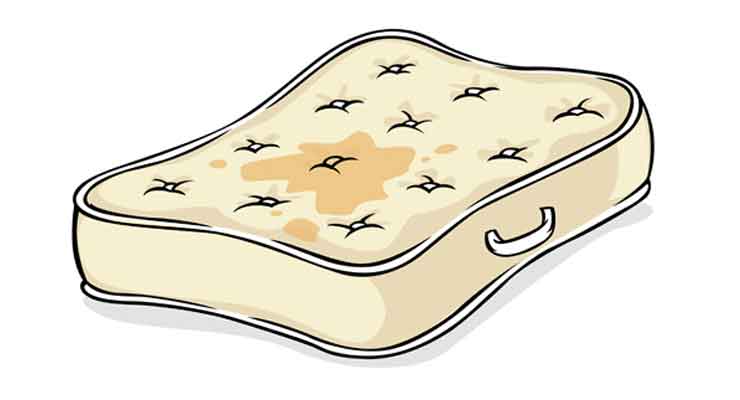The following is a guest post by Nicole Freedman, MSN, RN, CPNP, and nurse practitioner in the Division of Pediatric Urology at Children’s Hospital Los Angeles.
As a pediatric nurse practitioner in the urology clinic at Children’s Hospital Los Angeles, one of the more common non-surgical issues I see is bedwetting.
This is a very frustrating issue for many children and families. Parents often have to wash sheets and bedding on a daily basis and many children struggle with feelings of embarrassment or frustration.
It can inhibit their ability to feel like regular kids because the fear of wetting the bed prevents them from participating in normal kid activities like sleepovers or going to sleep-away camp.
What Causes Bedwetting?
Before we get to the prevention, let’s get to the causes of your child’s wet sheets. Genetics play a role in the incidence of bedwetting. For example, 77 percent of bedwetting occurs if both parents wet the bed as children and only 44 percent if one parent wet the bed. The age of the parent when they grew out of this issue as a child may give an idea as to what age their child may outgrow bedwetting.
Ways To Help Your Child Overcome Bedwetting
1. First, talk to your child’s pediatrician about this issue. Your child’s pediatrician will help rule out an underlying medical concern and may recommend a visit to the urologist.
2. Do not punish or scold your child. Give them encouragement and positive reinforcement, such as giving them a gold star sticker for each dry night.
3. Make sure your child stays well hydrated throughout the day. Children that don’t have much to drink during the day will become fluid overloaded in the evening or at night causing them to produce a lot of urine at bedtime.
4. Restrict all fluids after dinnertime. A two hour gap or more is recommended between the last drink and bedtime.
5. Avoid foods that irritate the bladder, such as citrus fruit, caffeine or carbonated drinks. In particular, restrict these after lunch time.
6. Make sure your child goes to the bathroom (pees) before bedtime. I tell my patients to make this a nightly ritual just like brushing teeth. Also, ask children to “double void” each time they use the toilet, meaning that they try to pee a little more after they have finished to make sure they are emptying the bladder completely. Many children rush through peeing and don’t empty completely finish because they want to quickly return to playing.
7. Make sure your child isn’t constipated. When the intestine is full of stool, this puts pressure on the bladder and may lead to a lack of control.
8. Sometimes doctors can prescribe medications to help children stop wetting the bed. Talk to your pediatrician or an urologist about the issue. The important thing to realize is that these medications just stop the body from producing urine overnight so they do not treat bedwetting.
9. Use a bedwetting alarm. The alarms are about 70 to 80 percent effective. The alarm is clipped on the pajama and a cord is attached to the child’s underwear. When the sensor in the underwear senses even a tiny drop of urine they begin to alarm and vibrate, waking the child up. When this happens, the child must get up, finish urinating in the bathroom, and reattach the alarm. The goal is to help your child’s brain recognize what is going to happen before it happens. Eventually the goal is for the child to wake up before they start urinating. These alarms can be purchased online without a prescription.
The good news is that your child will likely outgrow this. Bedwetting is generally more of a nuisance rather than a sign of a serious health problem, so don’t give up! It helps to talk with someone about this issue, such as an urologist to see if they can provide further insight.
Remind your child that they are not alone and not to be afraid to talk to your or their pediatrician about wetting the bed. I tell my patients that there are likely other children in their class that experience the same problem, except no one openly talks about it. At our Children’s Hospital Los Angeles, no one is going to judge them. We’re here to help.





